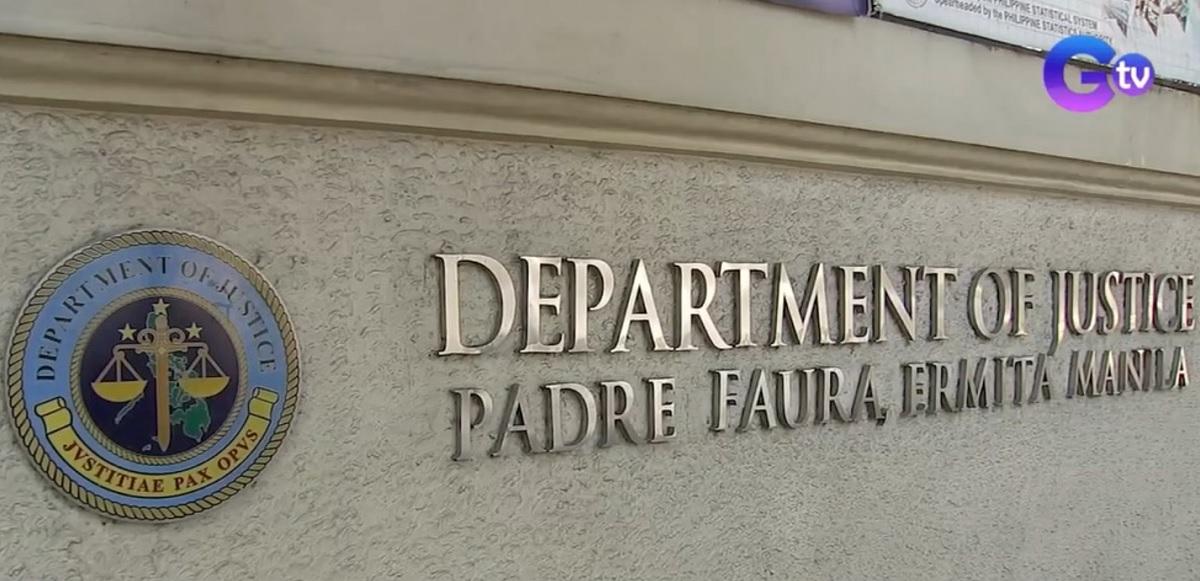'Gentleman's agreement' allowed in int'l law but legality depends on content —DOJ

The Department of Justice (DOJ) on Monday underscored the importance of knowing the actual content of the supposed "gentleman's agreement" between the Philippines and China regarding the Ayungin Shoal, as there is a possibility that it could be allowed under international law.
In a hearing of the House Committee on National Defense and Security with the Special Committee on West Philippine Sea, DOJ senior state counsel Atty. Fretti Ganchoon explained that under international law, two authorized officers of two states who said they have entered into an agreement, can already be bound by the agreement.
She said there are no formalities for a gentleman's agreement, meaning it coulf be made without any witnesses or without putting it in writing.
“A gentleman's agreement can exist in international law. It's called an oral treaty. It’s usually in the form of an oral treaty... and oral treaties are allowed in international law,” she said.
“But whether it is legal would depend on its contents, Mr. Chair. That's why we need to know the actual contents of this agreement,” she continued.
Ganchoon, however, pointed out that if such an agreement is indeed illegal because its actual contents have yet to be released, it no longer binds the Philippines in any way, since President Ferdinand "Bongbong" Marcos Jr. already rescinded it back in August 2023.
She was referring to Marcos’ statement last year where he denied that the Philippine government had promised China to remove BRP Sierra Madre from Ayungin Shoal.
Back then, the President categorically said he is rescinding any commitment, should there really be an existing agreement between the two countries on the removal of the grounded vessel.
“If such an agreement, I rescind that agreement now,” Marcos had said.
Former President Rodrigo Duterte earlier said he conceded nothing to China during his term, but he adverted to a "status quo" in which neither the Philippines nor China would make any move to disrupt the situation in the South China Sea, including the transport of construction materials to the BRP Sierra Madre.
Under domestic law, Ganchoon said there are two kinds of treaties: executive agreements and treaties proper.
For executive agreements, she said there is no need for the concurrence of the Senate, but for a treaty proper, it has to be submitted to the Senate for its concurrence to the ratification of the President.
“So we need to know based on the contents of the agreement, whether it can be the proper subject of an executive agreement or a proper subject of a treaty proper,” Ganchoon said.
As for the Department of Foreign Affairs (DFA), Assistant Secretary Aileen Mendiola-Rau said that what they only enter into are written obligations or written agreements with other countries.
“We have this discussed, we legal scrub everything, there oftentimes needs to be an inter-agency meeting before any agreement is entered into. In fact, all these pass through the legal process, and the agencies that are involved in any agreement must secure an approval from the President to sign,” she said.
Mendiola-Rau also stressed that the DFA has no record of an agreement regarding the Ayungin Shoal.
The House panels have launched an investigation into the alleged gentleman's agreement between Duterte and Chinese President Xi Jinping.
Supposedly, this agreement barred the Philippines from sending repair materials to the BRP Sierra Madre, which is stationed in the Ayungin Shoal. Only delivery of food and water supplies to Filipino troops on the decrepit ship was reportedly allowed.
Invite Duterte, Chinese embassy
During the hearing, House Deputy Minority Leader Representative France Castro said Duterte and representatives from the Chinese Embassy in Manila, including former officials from the DFA, should be invited to attend the hearing to answer the allegations.
“I would put this in motion, that we should invite ‘yung talagang nakipag-secret agreement [those who had the secret agreement], most importantly former President Duterte,” she said.
“Lalo pong lumala ‘yung ginagawang harassment ng Chinese government doon sa West Philippine Sea, kaya nararapat lang po na malinawan na ito,” she added.
(China’s harassment in the West Philippine Sea has gotten worse, so it's only right that this be cleared up.)
Several lawmakers also raised concerns about the absence of the key personalities from the previous administration, who were supposed to shed light on the alleged gentleman’s agreement.
Panel vice chairperson Rep. Raul Tupas said that former Executive Secretary Salvador Medialdea, former Defense Secretary Delfin Lorenzana, and former National Security Adviser Hermogenes Esperon Jr. were all invited to attend the hearing, but none of them were able to come.
Antipolo City Rep. Romeo Acop then motioned to issue a show cause order against those who had no valid excuse for their absence at Monday's hearing. He did not specifically name who these officials are.
The motion was approved by Tupas.
The Philippine Coast Guard, however, had a different stance regarding the House's investigation on the supposed gentleman’s agreement, which it said it has no knowledge of.
PCG commandant Admiral Ronnie Gavan appealed to the members of the Congress to halt the hearing as it may result in division among Filipinos.
“We cannot move forward the best we can if we have a divided people. We appeal that this hearing be concluded as the soonest possible time as this has the potential to divide the people and the potential to confuse us on the ground,” Gavan said. —KBK, GMA Integrated News




